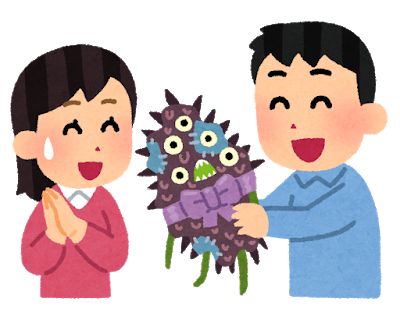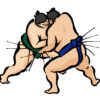What does uzai (うざい)mean?

“Uzai(うざい)!”
This is a slang often used by Japanese youth and some adults. This word seems to be used even among elementary school children recently.
Because it doesn’t have a positive meaning and is easy to use, there have been some cases where problems often occur between the person who said it and the person who received it.
What does “uzai" mean?
The meaning of “uzai” is “depressing”, “yuck”, “gross”, “troublesome”, “irritating”, etc. It is not meant to be any of these but is used to express a mix of the above emotions.
Simply saying “uzai”, which can easily express various emotions at once, can be easily uttered, so there is a possibility that an incident will easily occur.
“Uzai” comes from “Uzattai(うざったい)”.
The meaning of “uzattai" is messy, detailed and annoying.
Originally, “uzattai” was a Japanese dialect meaning “troublesome, unpleasant, yuck, gross”. It has been used in other areas relatively recently, only in the 1980s.
Many people might imagine that “Uzai” appeared in the Heisei era, but it seems that this word began to be also used in the 1980s.
Interestingly, this word originates from “tsuppari boom”.
“Tsuppari” was one of the words used to describe delinquent boys and girls in the 80s. At that time, dramas, comics, and movies on them were very popular, and unfortunately, there were some boys and girls who imitated those characters not only in schools and homes but also in society.
I have watched some drama and read comics, but I don’t remember well whether the word “uzai” was used in them. Speaking that word could bring someone into a fight, with or without a good reason.
It’s a rough word on its own, but in the dramas I saw and the comics I read, I can imagine that the following words, which were more harsh, were uttered.
“Uza!(うざ!、うざっ!)”
“Uzeeee!(うぜー!、うぜぇ!)”
“Uzendayo(うぜぇんだよ)"
Also, “uzattai” was used in the lyrics sung by “T-BOLAN”, a rock band that was popular in early 1990.
That’s an unkind word but often used as a joke between friends. It is like the Japanese words “baka” or “aho” which care must be taken in usage.
In Japan, a series of student suicides have become a social problem, which was sometimes due to the fact that the person who committed suicide was called “uzai”. There were also killing cases because of the word.
The origin of “Uzattai”
“Uzattai", the origin of “Uzai", is an adjective of the word “uza uza(うざうざ)", a mimetic word that existed in the Edo period.
“Uza uza" meant.
Feeling weird when seeing a lot of small things gathering together
Feeling horrified
A state where many kinds of things are gathering
Keeping nagging on a boring matter
It is said that “uza uza" is similar to “ujauja(うじゃうじゃ)” and “ujoujo(うじょうじょ)” used in Japan today.
Example of using “uzai”
Kurasu no sensei ga maji uzai.
クラス の 先生(せんせい) が マジ うざい。
My class teacher is really boring.
Kuraianto ga uzai hito de tsukareru.
クライアント が うざい 人(ひと) で 疲(つか)れる。
My client is annoying and tiring me.
Atarashii karesi nandakedo, nanka uzai otoko desa-.
新(あたら)しい 彼氏(かれし) なんだけど、なんか ウザい 男(おとこ) でさー。
My new boyfriend is a little bit weird.
Anta, uzai yo. Hottoite kureru?
あんた、うざい よ。放(ほう)っといて くれる?
You’re bothering me. Can you leave me alone?
Anoko itsumo dareka wo “uzai" tte iukedo, jibun ga ichiban uzai koto wo ki ga tsuite nainokana?
あの娘(こ)、いつも 誰(だれ)か を「ウザい」って いうけど、自分(じぶん) が 一番(いちばん) ウザい こと を 気(き) が ついて ないのかな?
She always says someone “uzai”, but doesn’t she notice she is actually the most uzai person?
And when you want to express stronger emotions, “cho / chou” is often added in front of “uzai”. This is used by young people and some adults.
“Cho / chou” means “very”, “super”, “wonderfully”, “seriously”, “honestly” and the like.
Ashita kara kimatsushiken. Cho uzai-.
明日(あした) から 期末試験(きまつしけん)。超(ちょう) ウザいー。
The end-year exam starts tomorrow. It is really troublesome.
Bukatsu no senpai ga chou uzai yatsu desa-.
部活(ぶかう) の 先輩(せんぱい) が 超(ちょう) ウザい 奴(やつ) でさー。
A senior in my club activity is seriously annoying.
Ima kara baito–. Hontou ni uzaindakedo.
今(いま) から バイトー。本当(ほんとう) に ウザいんだけど。
I have to go to my part-time job now, which is really troublesome.
















